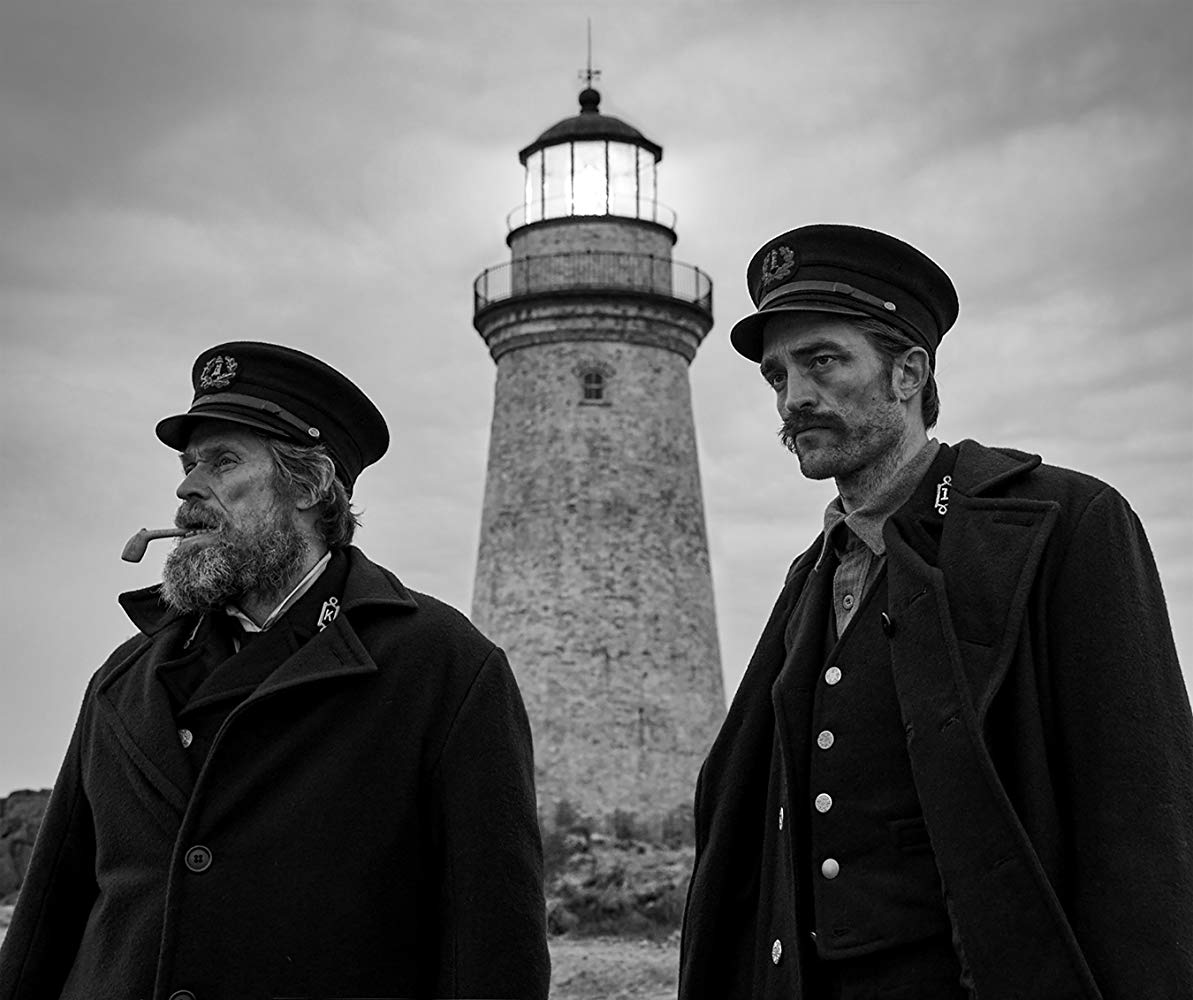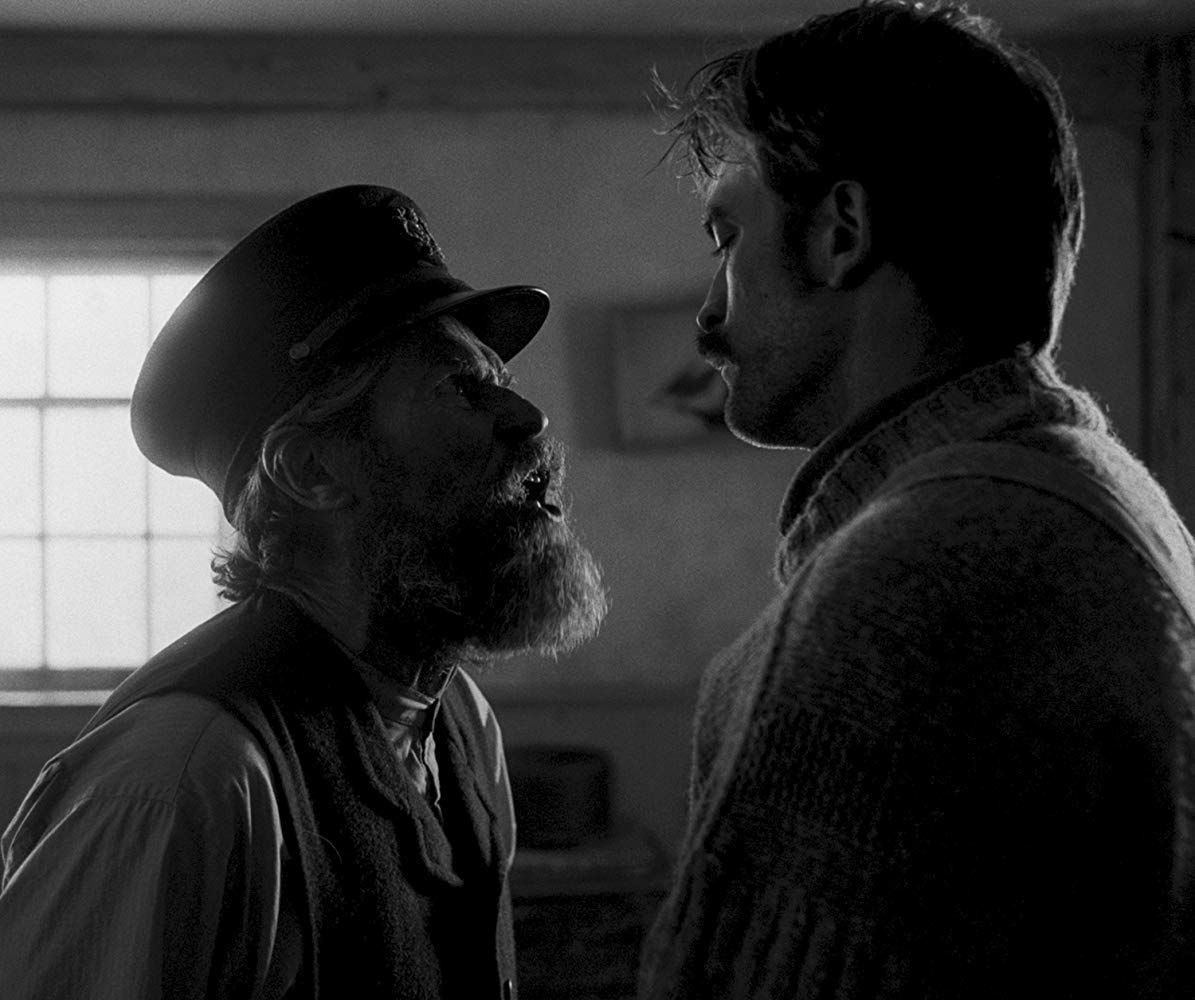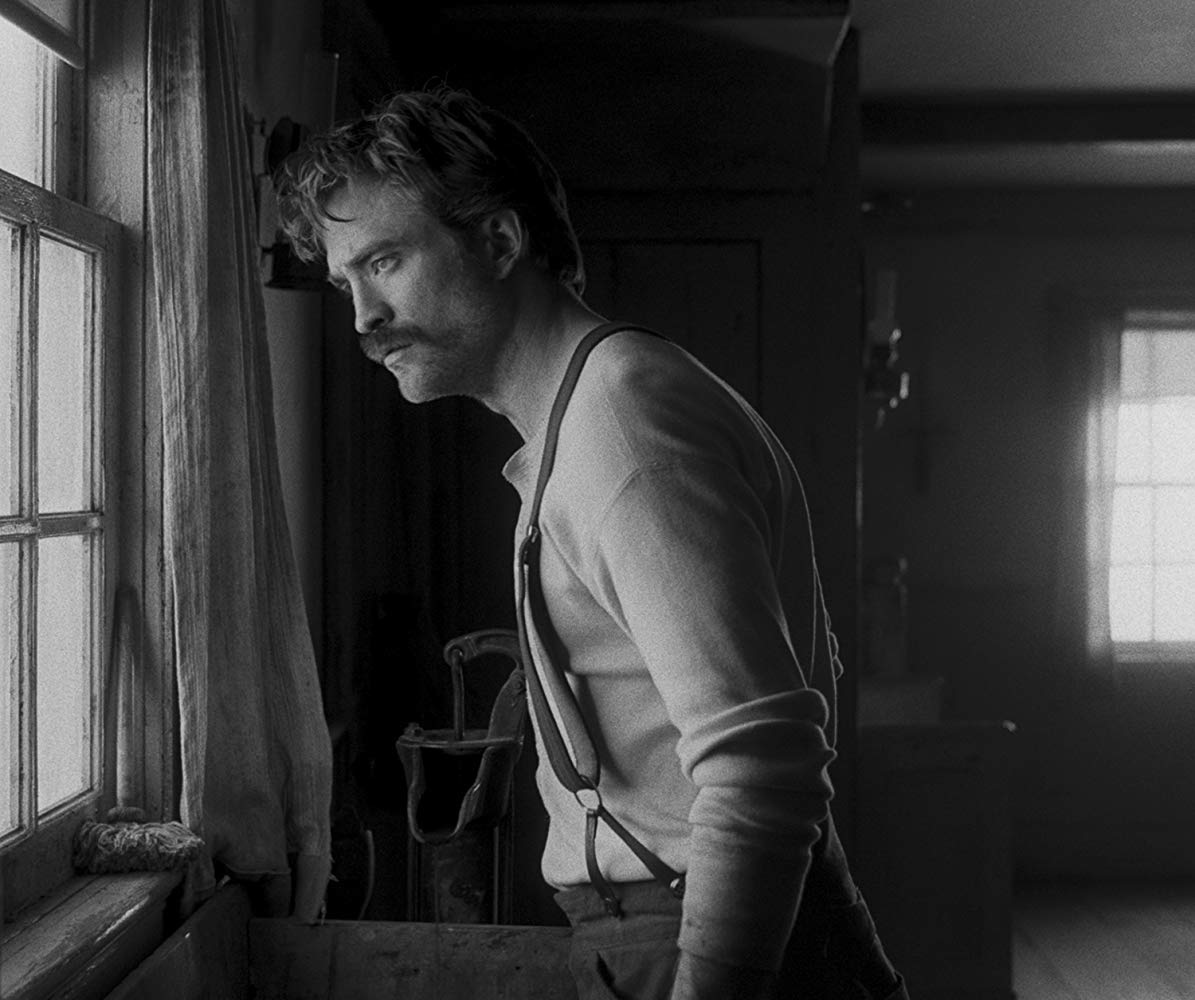Review: The Lighthouse is Dark, Disgusting, and Wonderful
4.5/5 tentacles.


The Lighthouse, the latest feature from writer/director Robert Eggers (The Witch), opened this week. It tells the dark and twisted tale of Ephraim Winslow (Robert Pattinson) and Thomas Wake (Willem Dafoe) two salty lighthouse keepers in late 1890s New England. Filmed entirely in black and white (and in a 1.19:1 aspect ratio, giving it a more square framing than most modern films), The Lighthouse explores the bleakness and depravity that bubbles up in the two men as they are stranded on the barren rock of their lighthouse island, struggling to survive until the next shift comes to relieve them.
Ephraim (Pattinson) is the younger, junior member of the team, while seasoned and grizzled old Thomas (Dafoe) is in charge. He claims the night shift, and thus manning the light, for himself, while Ephraim is stuck with the day shift and all of the grunt work that keeps the lighthouse functional. At first, withdrawn and obedient, Ephraim diligently follows Thomas’ orders and nagging demands, but the heavy physical labor and the claustrophobic living conditions start to take their toll on his psyche. He begins to hallucinate, seeing first a mermaid (inspired by the carved figurine of one that he finds in his mattress) and then the corpse of a man he used to know.

(Photo: A24)
He also notices that Thomas’ behavior grows stranger. At first just a gassy (like seriously so many farts), cranky old man, Ephraim one night finds him shirtless and worshipping the light as if it were a god. Ephraim’s temper begins to wear razor-thin, and the day before their shift is about to end, he ignores Thomas’ warning not to harm the seagulls (it’s extremely bad luck according to sailors and The Rhyme of the Ancient Mariner), and he takes his anger out on a poor bid, thrashing it to death. That night, a horrendous storm kicks up and continues for at least a week. Unable to leave the island, and with rations running low, they begin to turn on each other.
Following Eggers’ penchant for finding heightened moments of stylization within the confines of strict naturalism, The Lighthouse appears to lean into natural lighting (though because of the antique/period lenses used to film the movie it actually required much more light to get enough exposure—500-800 watt halogen bulbs were placed in period-accurate kerosene lamps all around set or right next to the actors’ faces). The daylight shots feeling almost blindingly grey and the night time shots appearing menacingly black.
The two actors also speak in period-accurate accents and dialect—Pattinson’s accent is specifically from a rural farming area of Maine, while Dafoe captures the old atlantic sailor’s speech. For modern audiences the combination of the period-accurate language, set, and (almost accurate) filming techniques creates a strange, eerie disconnect, like a waking nightmare. Giving a modern audience a naturalist for the period piece forces them into feeling the offness, or the wrongness, in their unconscious long before things actually begin to go wrong.

(Photo: A24)
The performances are incredible. Pattinson has fully shed his Twilight heartthrob image by leaning heavily into indie films, and while lingering Twilight fans might line up to see The Lighthouse because of his name, they will be in for quite a nasty surprise. He is excellent as the brooding, increasingly unstable Ephraim, delving deep into his worst impulses and desires. (Spoiler alert: there may or may not be some mermaid vagina).
Dafoe as the saltiest dog to ever salt, Thomas Wake, is also incredible. Dafoe is always captivating and charismatic on screen, and even if his dialect is difficult for some audience members to grasp hold of, I could listen to him pontificate and rattle off his old sailor tales for hours. I even love all of his farts. Two man films can be tricky to pull off, it’s easy for one actor to end up carrying both performances, but Pattinson and Dafoe have terrific chemistry, especially as both characters succumb to drink and become increasingly bizarre.
At its core, The Lighthouse is a ghost story. Not in the typical sense, however. There isn’t a literal ghost haunting the island, rather the men are haunted by their dark pasts. They both have skeletons buried in their closets (or in this case, drowned in the water) and desires that they feel ashamed to act upon. (Eggers has said of the film, “bad things happen when two men are trapped in a giant phallus.”)
Ephraim is running away from a crime he committed against a close friend and coworker, and while Thomas has leaned into his repressed nature, and is slowly manipulating Ephraim into the position that caused his last junior man to go “insane” and commit suicide. (At least, according to him.)
It is a dark, brooding, disgusting, masterpiece of a film. If you enjoyed The Witch and love a haunting sailor’s story (and if you think you can handle the language barrier.) about two men struggling with their inner demons and each other, then check out The Lighthouse, in theaters now.
(Photos: Eric Chakeen/A24)
Want more stories like this? Become a subscriber and support the site!
—The Mary Sue has a strict comment policy that forbids, but is not limited to, personal insults toward anyone, hate speech, and trolling.—
Have a tip we should know? [email protected]
